by John Copley
(ANNews) – October 26, 2018 marked the official Grand Opening of the Indigenous Knowledge and Wisdom Centre (IKWC), a unique tripartite undertaking that unites First Nations in Treaties 6, 7 and 8 who are working together to “collectively create an educational environment that will keep Indigenous cultures vibrant and strong.” The centre is located at 11710 Kingsway Avenue in Edmonton.
IKWC opened its doors last year and is currently operating a Virtual Library that is accessible to Indigenous students and educators in First Nations’ schools throughout the three treaty regions. The virtual library is for Band operated schools and offers learning resources, Indigenous educational information, curriculum and resource information, programs and research that reflect the cultural values and beliefs of First Nation schools.
As progress is made, the collection of available materials will continue to grow, particularly as interviews with Elders, community leaders, business professionals and others influential in the education of youth make their way onto the website. Audio and video formats will be utilized; the website’s library will store and share historical and archival information that will include tools for teachers and students. Knowledge regarding traditional ceremonies and languages will be available on the site, as will tools for teaching students. Resources will also be made available for teachers who will be teaching the five basic languages (Cree, Blackfoot, Sioux, Saulteaux and Dene) spoken in Treaties 6, 7 and 8 territories.
During the official Grand Opening of the Centre, IKWC CEO Clayton Kootenay noted that “education is the silver bullet in the hunt for transformational change and the advancement of our nations. It is the secret weapon against colonization, marginalization, and poverty. Fundamental to First Nations’ education is the preservation and revitalization of our languages and culture.”
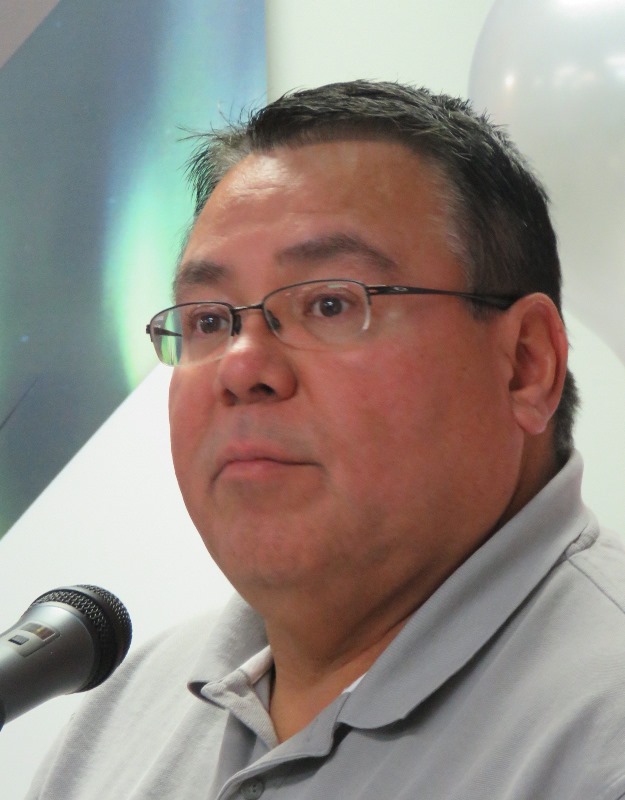
Treaty 8 Grand Chief Rupert Meneen.
The IKWC Virtual Library offers multiple learning paths and a wide range of options in the pursuit of knowledge and has been designed to assist students with their studies in a supportive online environment. The initiative is another precedent-setting move by Alberta First Nations determined to strengthen their communities and cultures through education and language retention. Log onto the website at www.ikwc.org to learn more about the organization, its mandate, mission and vision. Parents, educators and administrators who are registered and logged into the organization’s website will find a variety of educational enhancement information by clicking on the Virtual Library icon. There you will find four options: Grades K-3, 4-6, 7-9 and 10-12.
IKWC Director of Research and Innovation, James Knibb-Lamouche noted in an interview that “we are not yet live with the ‘public’ section of the Virtual Library. We are focusing on the students and educators in Band Operated K to 12 Schools right now, then parents and administrators. These areas will require sign-in information for our target audiences. Once more information is developed, we will also be providing content on the ‘public’ section” in the IKWC website.”
Land, language, history and culture are the main themes of focus with emphasis on digital story-telling in the higher grades, while the K-3 includes friends, animals and early training with abc’s and 123’s. The Grades 4-6 icon focuses on the four main themes and adds information on such things as friends and traditions, traditional skills, Indigenous knowledge and science and storytelling. The material, which is being curated by Indigenous educators and research staff, will utilize various tools, including video, photos, audio books, film and more. Alberta’s First-Nations operated schools will soon be the first in the province to receive resources and support from KIWC to help facilitate the preservation and revitalization of Indigenous culture and tribal languages.
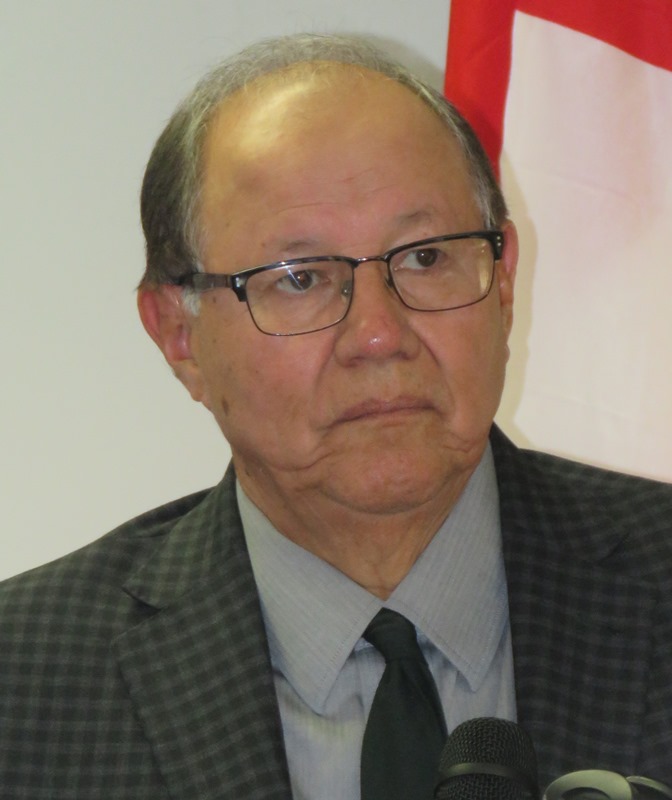
Emcee and former Blood Tribe Chief Charles Weaselhead.
Former Blood Tribe Chief Charles Weaselhead emceed the event and in his opening remarks spoke briefly about the “key people in the room, who were among the first to talk about this notion of building an organization that would provide a hub of information – not only for our Elders, but for our communities, our young people at large and also” for the general public.
“IKWC,” explained Weaselhead, “will provide an education, as it relates to our cultures and languages, and we hope this whole concept will also be heard throughout Alberta; this will allow people to have a better understanding of who we are in Treaties 6, 7 and 8.”
After an opening prayer by Maskwacis Elder Marvin Yellowchild, Weaselhead took the podium, introduced participating Chiefs and IKWC administration and staff to the gathering and talked about the organization and how it came to be.
“The concept of IKWC is not a new idea as it was borrowed from Citizens Plus in June 1970,” he noted.
“This concept was called the ‘Alberta Indian Education Centre’ (AIEC) and was designed to promote studies of Indian history, culture, language and values. Several years later the concept started to become a reality and in 2013 the Assembly of Treaty Chiefs passed a resolution in support of IKWC and in 2017 opened its doors and began operations. The need for a First Nations owned and operated Indigenous organization that focuses on a culturally appropriate educational environment for First Nation band-operated schools that supports lifelong learning is evident. The utilization of our culture, our knowledge and our languages as a foundation for the education of our children is paramount.”
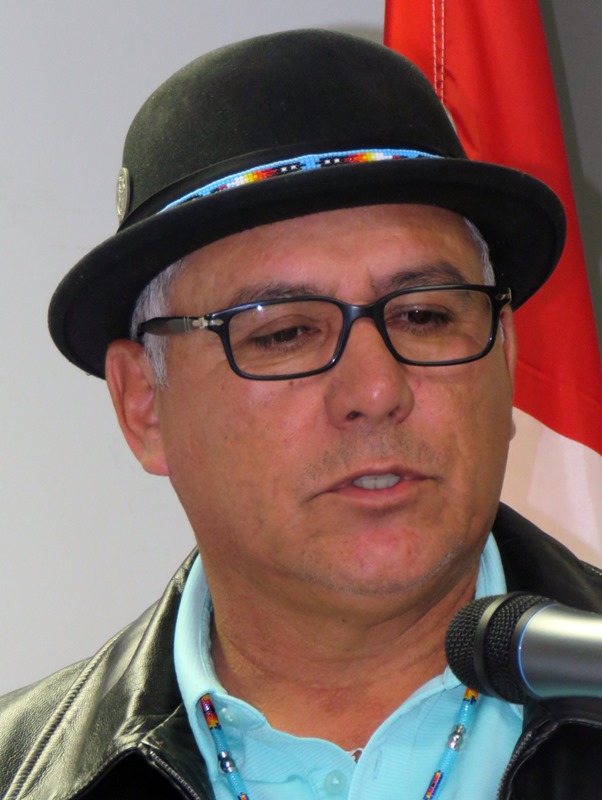
IKWC Board member Robbie Moosewah.
IKWC Board member Robbie Moosewah is a council member with the Saddle Lake First Nation (SLFN). He spoke as the proxy for SLFN Chief Eddie Makokis.
“Chief Makokis sends his best regards and congratulations on the official opening of the Indigenous Knowledge and Wisdom Centre,” he began. “Organizations like this allow us to continue to fight hard to keep our cultures alive and our languages
flourishing. We will continue to teach our children, and the generations yet to come,
about our culture and languages throughout Treaties 6, 7 and 8.”
Piikani Nation Chief Stan Grier acknowledged attending Chiefs and dignitaries and thanked CEO Kootenay and his staff for their commitment and hard work to keep the movement towards Indigenous education going. He reflected on the AIEC established in 1970 and on the now-famous Red paper, a document that offered a set of counter-proposals to Trudeau’s White paper, a government plan to eliminate Indian status in Canada. The Red paper set the course for First Nations people to take control of their historical and cultural resources and the ability to protect their languages.
“When Chief Norman Yellowbird handed the Red Paper (to counter Trudeau’s White Paper) to Mr. Trudeau it set us on a course for our people to take charge of our own education; it’s been a lifelong journey.”
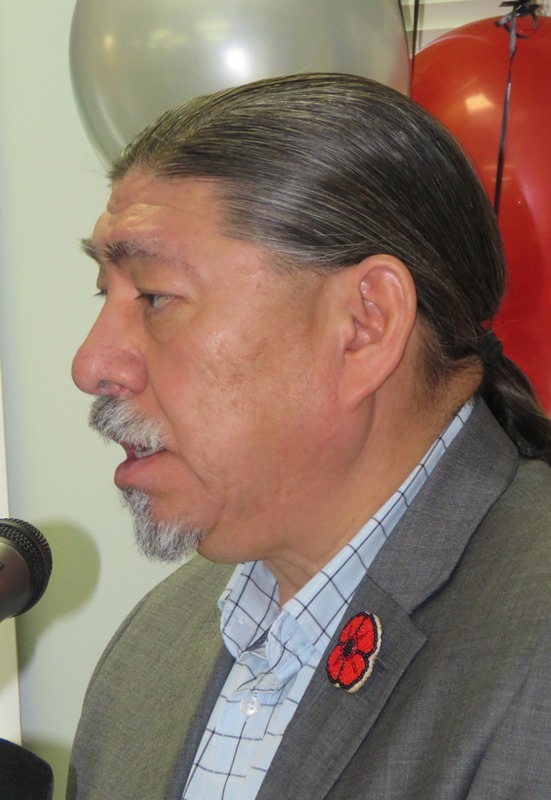
Piikani Nation Chief Stan Grier.
Chief Grier lauded the efforts of everyone who for many years, “worked hard and overcame many obstacles” before First Nations were able to take charge of their own education.
“Today,” he added, “we sit here in a facility that will allow us to take ownership of our education, our sacred articles, our stories, our futures. The hope is that our children and our future generations can have a better life than we had and that they can be proud of who they are.”
Treaty 8 Grand Chief Rupert Meneen lauded the efforts of the IKWC administration and staff and the many community leaders who participated in and helped move the IKWC project forward. He thanked the many workers and office personnel who worked tirelessly over the past year or more to develop the programs and the information needed to make them viable. He also congratulated the Chiefs and Councils throughout the three treaty areas for their part in making this education project a successful venture.
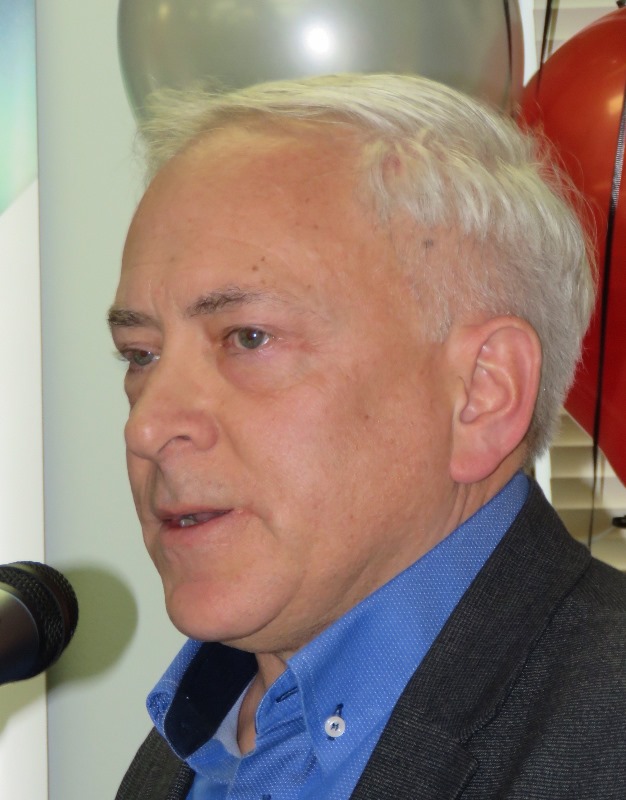
Kevin Murchie
“This is an historic day for First Nations people, our schools and other schools who will be able to access all of the information we have stored in this place,” noted Chief Meneen. “Down the road I see this as being a source of information, not just for our schools but for all schools across Canada.”
Kevin Murchie is the Associate Regional Director (Alberta) for Aboriginal Affairs and Northern Development Canada. He spoke about Edmonton, as the gathering place “for people to come together to talk about issues of importance. It seems fitting that we are gathered here today to mark the official opening of the Indigenous Knowledge and Wisdom Centre. I am honoured to have been invited to meet with you all here today. Most importantly, I’d like to recognize the leadership and the vision of the Board of Directors here at IKWC – and the staff. They are all doing important work to ensure that studying Indigenous history, culture, languages and values will continue for many generations to come.”
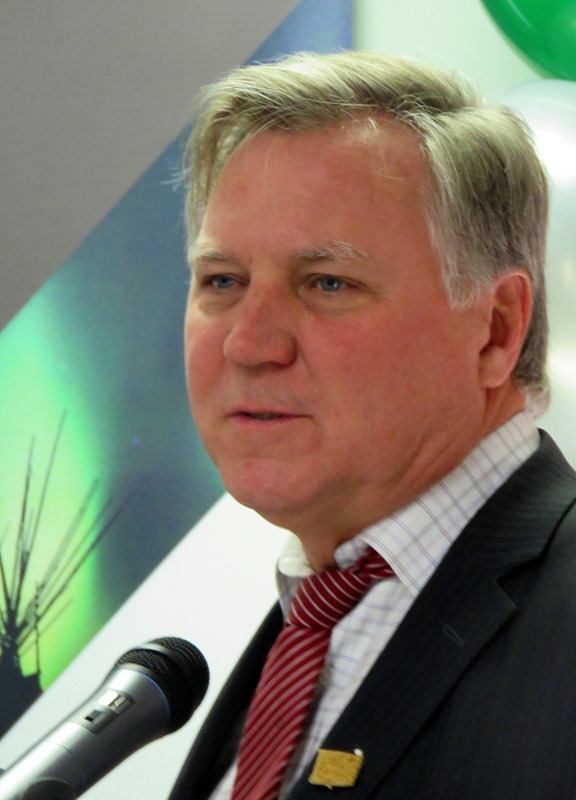
Alberta Indigenous Affairs Minister Richard Feehan.
Alberta’s Indigenous Relations Minister Richard Feehan joked with the audience for a few minutes before noting that “this is great – here you are in this place doing this incredible work, focusing and sharing this wisdom, which is something I truly feel our society, our white society, has lacked. My experience working in Indigenous communities is that there is plenty of wisdom to be shared, especially if you are open to it. Even today I learned a little bit about how to use a knife when shaping and molding a paddle; I was here just 10 minutes and I learned something I hadn’t known before. I’ve been invited to every community by every Chief who is here today and I appreciate that; the welcoming you receive is always incredible and if you are open to learning, things will transform.”
Feehan spoke about his department and noted that it isn’t just Indigenous Relations that has a vested interest in working in unison with Indigenous Nations and people, it is the whole of the Alberta government.
“Our premier, Rachel Notley is ultimately committed to making sure that Indigenous people” are able to live and work on level playing field, “and soon all school curricula from Kindergarten to Grade 12 are going to be learning about Indigenous traditional knowledge and wisdom.”
The last person to take the podium was IKWC Board member Jeannie Paul.
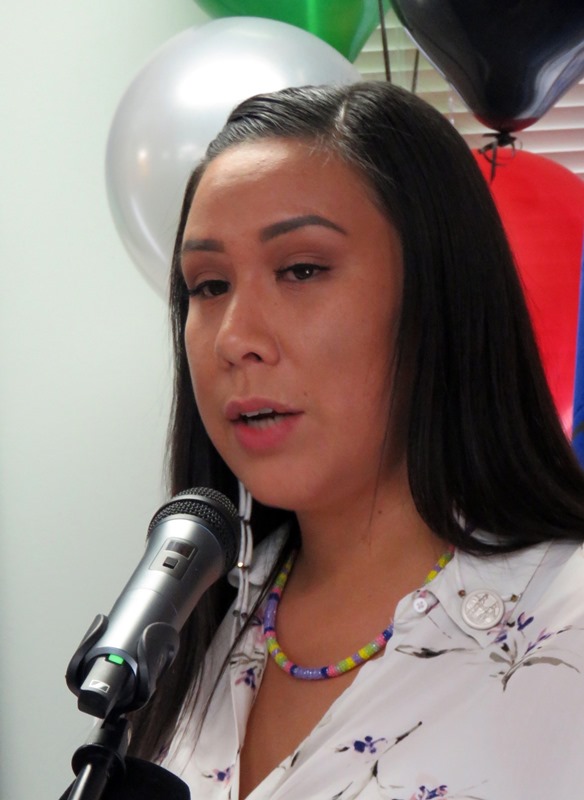
IKWC Board member Jeannie Paul.
“It’s been a long journey for the IKWC to get to this point and I thank you all for taking the time to join us today. As a mother it is extremely important for me that our children are educated and able to understand their cultures and speak their traditional languages. It is equally important that there are supports available through our platform to our First Nations communities, supports that include culturally appropriate education, guidelines, policies and research based on the needs of our communities.
“IKWC is unique and works with the guidance of our (community) educators. Students and teachers using our Virtual Library will soon have access to education resources, e-books, film and more. The information being (put together) at IKWC is the first step in working with our communities for the betterment of our students and ensuring lifelong learning with a focus on our traditions, culture and languages.”
IKWC’s mandate includes honouring the diversity among Indigenous cultures; honouring the inherent and treaty rights of Indigenous peoples; celebrating and sustaining First Nations environments, languages, cultures and identities; and developing a legacy of knowledge and teachings for lifelong learning.
For more information visit www.ikwc.org.

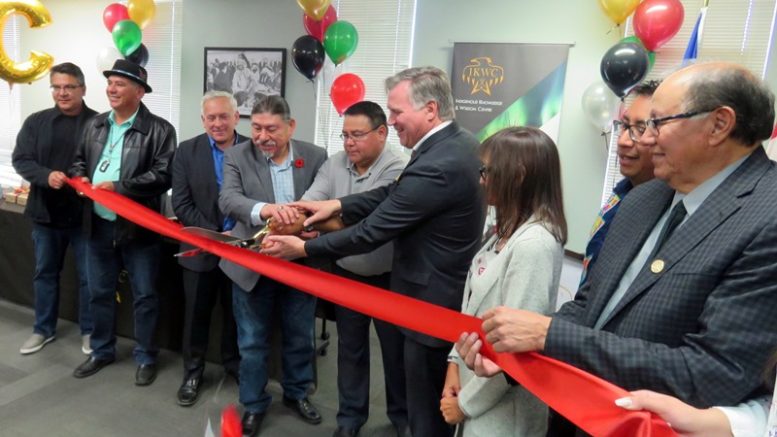

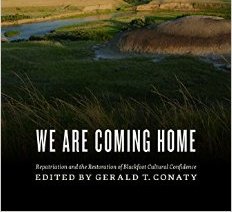
Be the first to comment on "Indigenous Knowledge and Wisdom Centre opens in Edmonton"